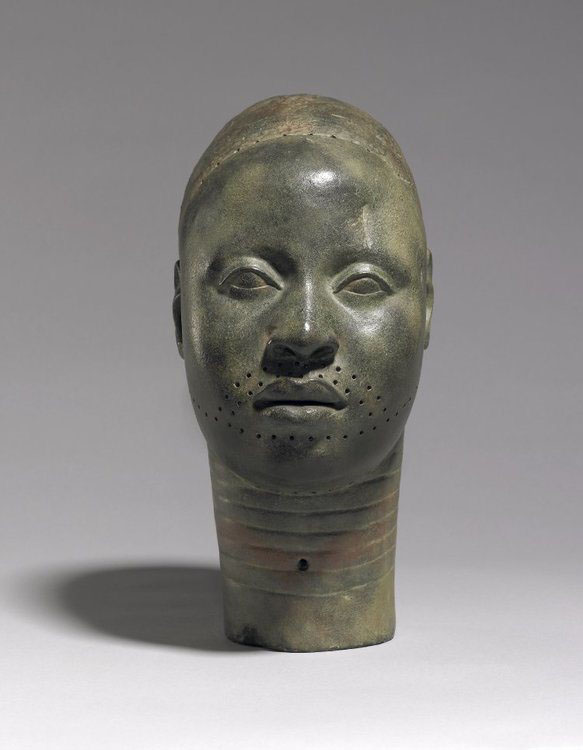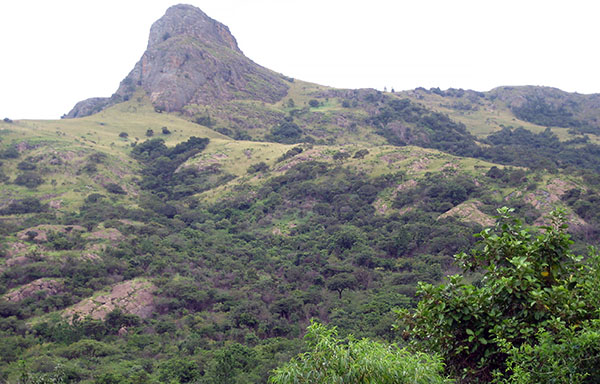In the non-African world, there is not much familiarity with the emergence and development of early African societies, except for some recognition of maybe a few words such as "Bantu" or "Swahili." This is partly due to the result of a lack of surviving documentation and materials; partly the lack of serious investigation by scholars; and partly racial bias. The best documented of the early African societies are the early kingdoms of Northeastern Africa. These would include:
- Nubia, located along the upper Nile Rive in approximately present-day central Sudan, spanning the time frame 2500-1500 BCE, eventually conquered by Egyptians
- The Kingdom of Kush, a Nubian kingdom, centered on the city of Meroë, that at one time conquered Egypt and ruled Egypt as the twenty-fifth dynasty. It lasted into the 300s CE.
- Axum, centered in present-day Eritrea, approximately 80 BCE to 800 CE. Prospered as a result of its location near Egypt and on the Red Sea trading routes. This kingdom was an early adopter of Christianity.
Scholars do not know much conclusively about most of sub-Saharan Africa before the first or second century CE and are only slowly filling in the gaps. Please feel free to review my lecture notes (rtf file) on early African societies. You may send me any suggested corrections or additions.
As I just wrote, there is a scarcity of surviving written records. Part of that is due to the fact that climactic conditions on parts of the continent, with the exception of the desert regions, have not been particularly conducive to the preservation of architectural remains. Another reason for the lack of written sources is the fact that European colonizers of the eighteenth and nineteenth centuries in their attempt to spread Christianity tended to wipe away any traces of native cultural or written heritages. And a final lack of records is due to the the enormous diversity of the African experience and the relatively smaller sizes of African kingdoms and empires.
Finally, while Europe muddled its way through the Middle Ages, a series of extremely important African kingdoms flourished in West Africa. These African kingdoms were important participants in world trade at the time, especially to Europe, with the key ingredients of that trade being salt, gold and slaves. You'll come face-to-face with Mali when you work on the Ibn Battuta group project.
The Mali empire, founded by Sundiata Keita (1214?-1255?), reached its peak in the thirteenth and fourteenth centuries. The empire supplanted the former Ghana empire (500-1200CE) had previously existed in western Africa (modern southern Mauritania). Mansa Musa, (1280?-1337?), was probably the most famed of the Mali rulers. He undertook the Hajj to Mecca in 1324/25 and distributed massive amounts of gold to people, towns and cities along the way. He was renowned for his wealth, and you'll learn more about Mali society when you complete the project.
The city-state of Ilé-Ifè was located in what is now southwestern Nigeria in roughly the same time frame as the Mali Empire. Ife was the capital and principal religious center of the Yoruba society. It has become world famous for the magnificent naturalistic bronze and terracotta sculptures, dating back to the 1200s. See below for an example from the British Museum.

![]()
Some recommended online lectures and websites
- Highly recommended -- the PBS series Wonders of the Ancient World narrated by Henry Louis Gates Jr. These programs are all great, but the ones on Nubia and Kush were fantastic.
- Wikibooks: World History/Ancient Civilizations (Ancient Kingdoms of Africa)
- At Boundless World History, see the section on African Civilizations (Reasonably well done).
- African Civilizations (list of Wikipedia entries)
- The Trading Kingdoms by Charles Kimball
- Kingdom of Ife: Sculptures from West Africa
- Some sites dealing with Sundiata: Wikipedia, background info, and kind of a summary
- Ife (Wikipedia) and the Ancient History Encyclopedia
- Kingdom of Ife: Ife uncovered (video by the British Museum)
- For extra credit please suggest to your instructor a relevant website for this unit of the course. Send the title of the site, the URL and a brief explanation why you find the information interesting and applicable to the material being studied in this unit.
